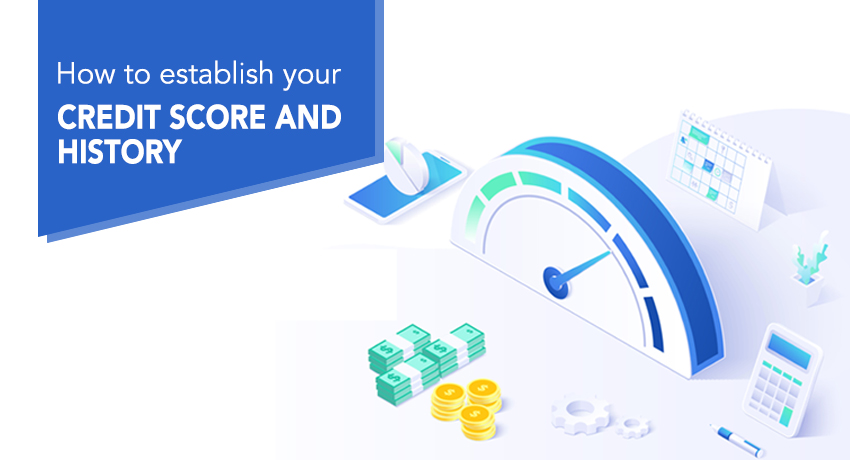It’s a no-brainer that a low CIBIL score has been one of the major reasons for the rejection of loan applications. Most banks require a credit score above 750 to process the loan application. The second arrangement is NBFC. However, the interest rates and charges levied by the NBFCs makes loan virtually unattractive. Therefore, a good way out is to actively take steps to increase our credit score and build our credit history. How? Let’s find out!
What Impacts Your Credit Score and How to Improve the Same?
Multiple factors interplay when it comes to building our credit score. Following are some of the important components of a credit score and how much they impact our credit report:
1) Repayment History: Repayment history shows our past credit behaviour and how promptly and timely we made our debt repayments including the defaults if any. It accounts for approximately 30% of our credit score.
Pro-Tip: Avoid skipping EMIs and ensure timely payment of your EMIs. Set reminders for EMIs if necessary.
2) Credit Utilisation Limit: How much credit have we utilised from the total credit available constitutes a credit utilisation limit. Credit cards are a good example of this. It can simply be derived by dividing the amount payable by the total credit available. It accounts for approximately 25% of our credit score.
Pro-Tip: Try to keep your utilisation ratio below 30%-40%. This ensures that we are not highly dependent on debt.
3) Credit Inquiries: The more inquiries we make, the more we damage our credit score. Multiple hard inquiries are a sign of a potential riskier customer who is running short of funds and therefore racking up debt. Each hard inquiry can reduce our credit score by as much as 3-5 points and stay in our credit reports for about 2 years. 20% of the impact on our credit score is estimated to be because of multiple hard inquiries we make.
Pro-Tip: Therefore, it is better to avoid unnecessary inquiries of loans and only inquire when we really need them. You can make soft inquiries. It happens when your credit is checked as part of your background check. It normally includes checking credit scores on third-party websites, prequalified credit card offers etc.
4) Length of Our Credit History: A long and positive credit history is a good indicator for getting our loans sanctioned. The lenders go through our credit history right from the first time we availed of a credit facility. Therefore, if we have been timely on our repayments and showcase good credit behaviour, then it can highly beneficial for future loan arrangements.
Pro-tip: Do not close old credit card accounts. You can simply retain them even if you do not use them much now.
5) Credit Mix: Credit mix is the ratio between secured and unsecured loans we have taken. The right credit mix is important to maintain a proper credit score. If we rely too much on unsecured loans, then it will imbalance the credit mix and further lower our CIBIL score.
Pro-Tip: Don’t go excessively for unsecured loans like credit cards, personal loans etc. Maintain the right composition of secured and unsecured loans.
6) Check Your Credit Score Timely: We should check our credit score regularly. As per Financial Express, 52% of people know what a CIBIL score is and its importance. Still, 68% of the respondents didn’t know their credit score. Checking credit scores regularly ensures that any misinformation and discrepancies are timely reported.
Pro-Tip: We should check our credit score at least twice each year. This ensures that we have a thorough track of our credit score and the effect of our credit behaviour.
In a Nutshell
A good credit score and credit history are not established overnight. It takes a reasonable amount of time, depending on how well we manage your finances. Lenders note our credit handling abilities and then decide whether we are eligible for credit or not.
Niyogin is the new age neobank that provides multiple credit facilities to boost your credit score. From unsecured working capital loans to secured loans and transaction-centric short-duration loans, you can easily avail of credit facilities. The more timely repayments and better credit behaviour you ensure, the higher your CIBIL score will be!
